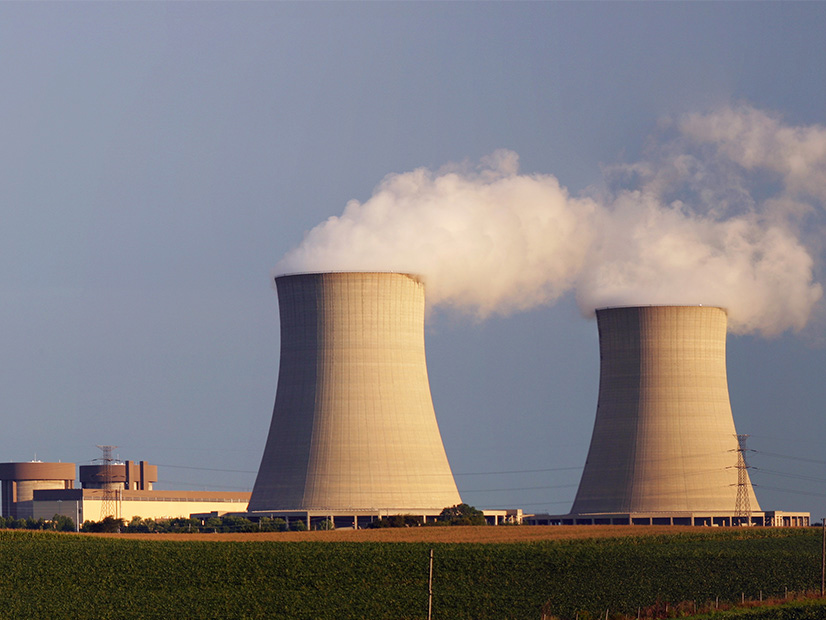
The Democrat-dominated Illinois House of Representatives approved Gov. J.B. Pritzker’s massive Energy Transition Act late Thursday evening over the objections of Republican members by a vote of 83-33, sending the bill back to the Senate for expected concurrence on Monday.
The bill included a slew of changes made by the Senate a week earlier and during ongoing negotiations in the days and even the hours immediately before the vote.
The massive landmark bill, in the making for three years and intended to address global climate change, aims to make Illinois power generation 50% renewable by 2045 and 100% renewable by 2050. Renewable energy currently comprises just 7% of the power sold in Illinois.
The legislation would also require the closing of all gas and coal burning power plants by 2045 while funneling nearly $700 million to Exelon over the next five years to keep three of the company’s six Illinois nuclear plants operating.
Exelon has said it will close one of the two reactors at its Byron nuclear plant Monday unless the state approves the bailout. The reactor was running at 77% Friday morning, according to the U.S. Nuclear Regulatory Commission, coasting down to a shutdown for refueling.
The legislation would also funnel millions of dollars into a special fund to help homeowners finance rooftop solar. That fund was depleted earlier in the year, and the home solar business slowed down significantly.
The House Executive Committee held a hearing Thursday afternoon in which downstate Republican members sharply criticized the bill’s intent to force municipal coal plants to close or capture and sequester CO2 emissions.
The full House convened late afternoon, only to recess at the request of Republican members who said they needed to caucus to review the changes in the legislation. The changes amounted to more than five pages and included:
-
- requirements that the 1,600-MW Prairie State and City Water, Light & Power’s 200-MW Dallman coal-fired plants achieve carbon-emission reductions of 45% by 2035. If the two facilities can capture and sequester 100% their carbon emissions by 2045, they would be able to continue to operate. On Thursday morning, the language in the amended bill would have funneled up to $200 million to Prairie State to finance emission reductions, but that had been stripped out by late afternoon. Prairie State, which opened in 2012, is owned by municipal power companies in six states. Dallman is owned by and serves the city of Springfield.
- a provision allowing the Illinois Environmental Protection Agency to use existing funds to create a $4,000 rebate for consumers who buy an electric vehicle.
- an expanded and detailed ethics section that requires each utility to create the position of a chief ethics and compliance officer who would be required to submit annual reports to the Illinois Commerce Commission
Republican representatives mounted a strong opposition to the legislation during a prolonged debate Thursday night. They dismissed global climate change, often used by the Democrats as a reason to approve the legislation. They argued that when the coal plants are shut down, MISO will be short of power and the state will just import coal power from surrounding states. And they blasted the “clean energy job creation” aspects of the legislation, countering that the state’s community colleges already offer such programs.
The legislation has been estimated to cost residential ratepayers $3.51/month, but opponents argued that the delivery side of the bill would also increase. Public assistance to renewable energy alone would cost $18 billion over 18 years.
Rep. Brad Halbrook, a downstate Republican, demanded to know whether the state would assist the electric co-ops and municipal power companies that would be stuck with $4 billion in debt when Prairie State is forced to close prematurely. Halbrook also castigated Democrats for the concept underlying the far-reaching energy bill.
“This is California-style energy policy. We just saw reports in the last couple of weeks that the California energy group ordered five gas plants to come online to make up for a loss in production,” he said, an apparent reference to CAISO’s request to the U.S. Department of Energy for an emergency declaration. (See related story, CAISO Seeks DOE Emergency Reliability Order.) “This is horrible policy that will drive jobs out of this state; it will import less clean energy; it will drive up costs; it will reduce reliability; rolling brownouts and blackouts will become the norm.
“If this is a great idea, we need to let the free market decide. Ladies and gentlemen, I ask you, what is the perfect temperature that we are trying to attain by this process? This is one more thing that makes Illinois a politically uninhabitable state.”
The nuclear bailout also rankled many of the Republican members, some of whom recalled that Exelon subsidiary Commonwealth Edison had agreed to pay $200 million fine in connection with a federal corruption probe.
Earlier in the day, two critically important groups, a coalition of unions that have organized under the umbrella Climate Jobs Illinois and Illinois Clean Jobs Coalition, announced their support for the bill as it was then written. The Illinois Manufacturers Association testified against the bill, arguing that closing baseload coal plants would drive manufacturing out of the state.
Following the vote, the Path to 100 Coalition, representing the solar industry and local solar companies, praised the passage of the bill as a job creator in the battle for equity and an effort to deal with climate change.
“Illinois is now on the path to 40% renewable energy by 2030 and 50% renewables by 2050. If the Senate approves this legislation immediately, we will have taken critical action to address the climate crisis while keeping equity at the forefront, protecting consumers and creating tens of thousands of good jobs,” said Nakhia Crossley, Central Region director for the Solar Energy Industries Association.
House Speaker Emanuel Christopher Welch on Friday applauded the passage of the legislation as “monumental and life-changing for the future generations of Illinois.”


